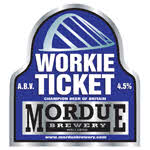Sounds like an amazing combo, right? It’s a reality for a friend of mine. A native German speaker raising two children in Newcastle, she noted that her older child – we’ll call her Viktoria – used to produce certain German words with a strikingly Geordie accent.
Before we kick off, a couple of notes on notation that follows. When I talk in this post about sounds, I won’t use the Roman alphabet to represent them (e.g. ‘k’), but I’ll be using the International Phonetic Alphabet (IPA). I’ll put example sounds from the IPA in between slashes like this: /k/. So in the word kick, there are two /k/ sounds: one spelled ‘k’, and one spelled ‘ck’. In reality, that second /k/ sound is often pronounced a little differently in spoken English because it’s at the end of the word, – the last ‘kick’ of the /k/ isn’t fully released, so we might represent it like this: [k ̚]. Notice the brackets have changed: because I’m now representing a sound not in its ‘ideal’ form, but as it’s *actually* pronounced, I’m using square brackets.
Back to Geordie German!
In a typical Tyneside English accent (that’s academic for Geordie), intervocalic (between-vowels) /k/ is often pronounced with glottal reinforcement – that is, at roughly the same time as a glottal stop [ʔk]. A glottal stop occurs when the the glottis – the opening between the vocal folds – is completely closed, stopping airflow from the lungs. Glottal stops are pretty common in contemporary British English in place of final consonant /t/. That means words like ticket are pronounced roughly like /tɪkɪt/ or /tɪkɪʔ/ in many British Englishes, but are pronounced more like [tɪʔkɪʔ] in Geordie – it’s one of the most recognisable features of the dialect.

Copyright: Mordue Brewery
So if you’re two-and-half year old Viktoria and learning both German and English in Newcastle, maybe it’s not surprising that German Socken (socks) and Jacke (coat), which also have an intervocalic /k/, morph from /zɔkn/ and /jakə/ to [zɔʔkn] and [jaʔkə]. It’s even more likely given that German-acquiring children can take a while to accurately acquire intervocalic /k/ compared with word-initial and word-final /k/, and some even pronounce it further back in the mouth, albeit not as far as the glottis. As a bilingual learner, Viktoria will hear fewer examples of German intervocalic /k/ from only a couple of speakers, and will hear plenty of Tyneside intervocalic /k/ from her nursery carers, the general population, and probably even her nursery peers – intervocalic /k/ is acquired pretty early in (US) English (there’s no work out there on intervocalic [ʔk] in Tyneside English specifically).

Copyright: GeogDesigns on RedBubble.com
Two years down the road, Viktoria has gained a lot more experience of both German and English and has dropped [ʔk] from her inventory of German sounds. However, her mother notes another feature of Tyneside English in Viktoria’s German which is hanging on more stubbornly: rising intonation outside of questions. This one could endure a wee while – bilingual children often only settle on different rhythmic patterns for each of their languages around age 11, as Whitworth shows for German-British English bilingual children growing up in West Yorkshire.
Postscript: It was *way* harder in writing this post to find the literature on English acquisition compared with German or bilingual literature. Why? Because the paper I eventually found on acquisition of intervocalic consonants in English doesn’t mention the word “English” in the title, abstract, keywords…in fact, *anywhere in the article*. So we can only infer that the language at issue is English because the children were recorded in a lab for work that included the author, and the author is at the University of Washington. So this is a good time to introduce the (ironically also born of the University of Washington) Bender rule: always name the language you’re working on, because language =/= English.
References
Bender, Emily M. 2019. The #BenderRule: On Naming the Languages We Study and Why It Matters. The Gradient (online), 14 Sep 2019.
Kehoe, Margaret M. and Conxita Lleó. 2002. Intervocalic consonants in the acquisition of German: onsets, codas or something else? Clinical linguistics and phonetics 16(3), 169-182. DOI: https://doi.org/10.1080/02699200110112213
Stoel-Gammon, Carol. 2002. Intervocalic consonants in the speech of typically developing children: emergence and early use, Clinical Linguistics & Phonetics 16(3), 155-168. DOI: https://doi.org/10.1080/02699200110112204
Watt, Dominic and William Allen. 2003. Tyneside English. Journal of the International Phonetic Alphabet: Illustrations of the IPA, 33(2), 267-271. DOI: https://doi.org/10.1017/S0025100303001397. Click for online PDF.
Whitworth, Nicole. 2002. In Diane Nelson et al (eds), Leeds Working Papers in Linguistics and Phonetics 9, 175-205. Click for online PDF.